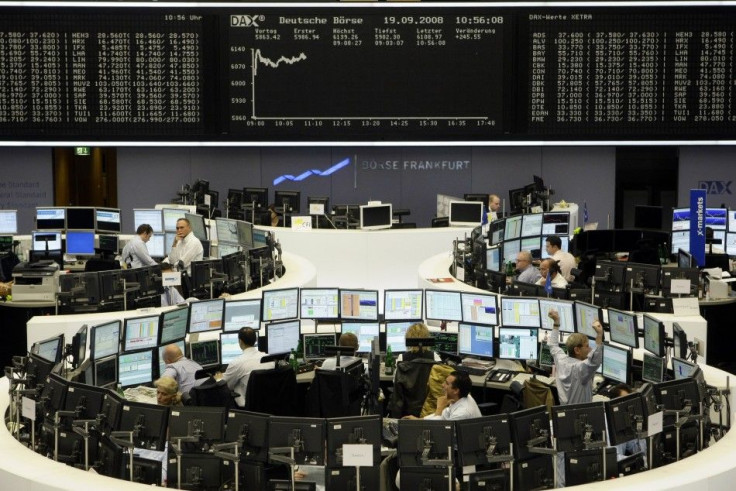Europe's Markets Flat Monday at Mid-Day Ahead of Italian, Spain Debt Sales

(Reuters) - European stocks were essentially flat on Monday at mid-day in choppy trade, bouncing from last week's sharp pull-back, with gains in defensives limited by a drop in banking shares led by Unicredit following its rights issue.
Investors were also cautious ahead of this week's key debt sales by Italyand Spain. The two countries were in focus in the run-up to their first bond auctions of the year.
At 1244 GMT, the FTSEurofirst 300 index of top European shares was up 0.2 percent at 1,015.17 points.
Sectors seen as defensive such as food and beverages as well as utilities gained ground, with Heineken up 1.1 percent, Unilever up 0.6 percent and Iberdrola up 1.3 percent.
The euro zone's blue chip STOXX 50 index was up 0.5 percent at 2,309.94 points. The region's benchmark index, which lost around 4 percent in the past three sessions, hovered above two strong support levels on Monday, its 50-day moving average as well as an upward trendline formed by recent lows test earlier in the session.
The near-zero growth or recession in many European countries is preventing the return of investor confidence despite the additional austerity measures announced recently, said Franklin Pichard, director at Barclays France.
The vicious circle continues: what's saved with austerity measures dampens economic growth ... In the next few days, people will focus on the ability of Spain and Italy to tap the bond market.
Banks were among the biggest losers, with Commerzbank down 2.7 percent, Natixis down 2.5 percent and Banco Espirito Santo down 1.2 percent.
Shares in UniCredit sank 12 percent on Monday, extending their losses so far in 2012 to 45 percent, while trading in the rights to buy into the bank's closely watched cash call were suspended.
UniCredit's nosedive over the past week after it unveiled its capital increase signals that it's almost impossible for European banks to use rights issues to get fresh capital, Barclays's Pichard said.
The Euro STOXX 50 volatility index, the euro zone's main fear gauge was down 1.1 percent but remained above 30, signalling that investors have a low appetite for risky assets such as equities.
Deutsche Bank derivative strategists said in a note equity volatility is set to follow a lull/spike pattern throughout 2012, driven by a range of macro and political factors including the euro zonedebt crisis and U.S. elections.
In a nutshell, we foresee S&P 500 and Euro STOXX 50 implied volatility to trade in a relatively wide range this year as various catalysts are likely to bring repeated volatility spikes, they wrote.
Short-dated implied volatility in Europe is likely to spike to 40 or above and then return back to mid 20's, they said.
Around Europe, UK's FTSE 100 index was down 0.1 percent, Germany's DAX index down 0.1 percent, and France's CAC 40 up 0.3 percent.
Aluminium company Alcoa will be kicking off the fourth-quarter U.S. earnings season after the market closes on Monday. Banking heavyweight JP Morgan is among those reporting later in the week.
JP Morgan is likely to have done reasonably well, and that may result in some short-term strength for the banks, though it doesn't mean the banks are out of the woods by any stretch of the imagination, said Jeremy Batstone-Carr, strategist at Charles Stanley.
© Copyright Thomson Reuters 2024. All rights reserved.





















